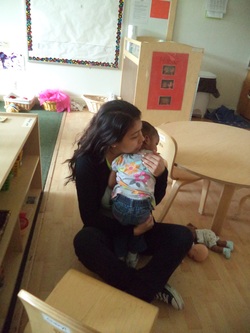 By Cheryl Ichikawa I grew up in a time when discipline was not about communication and respect. It was about doing what I was told. Consequences always entailed losing certain privileges, and often included physical punishment. Fear was considered a deterrent. But what did I learn? When I became a parent and had to decide how to discipline my children, it was not easy because many of my friends and family still subscribed to the same patterns of generations before them. However, what I learned growing up was that fear does not just deter you from doing the wrong things, but the right things as well. For me to try new things, venture beyond the familiar and safe, or to allow myself to do something with the possibility of getting it wrong… fear stopped me every time. I decided that I wanted my children to grow up, not in fear of what could happen, but with an understanding of why things do happen. I wanted them to be able to take risks (calculated risks) that allowed them to see beyond what is and venture into what could be. Therefore, my children needed to understand that making mistakes is the first step to learning something new. And so, I decided to discipline my children with respect and communication instead of threats, reprimands and physical punishment. Non-violent caregiving nurtures children’s belief in themselves and gives them the courage to seek new adventures and build upon what they know to be true. Instead of fear, children and caregivers create a dynamic of trust, communication and support. Children are results-oriented. Therefore, if caregivers can provide children with non-confrontational ways of interacting with peers or verbal alternatives for getting their needs met, they can decide to act accordingly. However, the burden of consistency and control is on us. We must decide how we handle situations - our volume, tone of voice, physicality, and the words we use. All these things matter and have an effect on all the children in the environment. Young children learn by example. Therefore, it is the caregiver’s responsibility to always act accordingly. Inconsistency is confusing and creates stress for children. Have you ever watched a child in the process of learning something new? They will do the same thing over and over and over again, often with a smile on their face. This is learning. Discipline needs to be administered the same way. We must have consistency in our responses to negative behavior. We must use few choice words, a soft voice, a gentle touch and we need to come down to their physical level (kneeling or squatting). By doing this, we show respect for the child and what is happening in the moment. By acknowledging what is happening in the moment, we show the child that we are watching. By offering the child help or another alternative, we help the child to understand that there are different choices he or she can make next time. Watching a child experience life is a beautiful thing. They see new things without filters, past experiences or fear. As caregivers (teachers, parents, adults) we must work daily to protect the innocence of our children and allow them to just be in the moment… to learn on their own terms, in their own time, and in their own way. Comments are closed.
|
AuthorVarious members of the Children Today staff contribute to these blog posts. Archives
July 2024
Categories |
